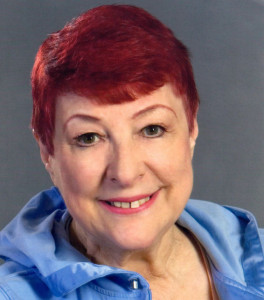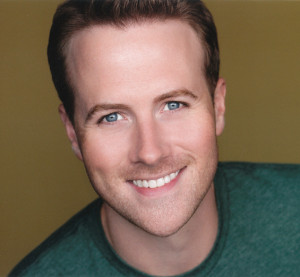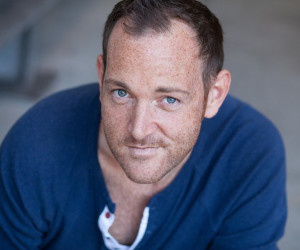Current and Recent Shows
In this column I discuss one show that is currently running, a handful of others that played within the past couple of months, and two that will be returning. In the process, I make a few observations that have broader relevance.
A short while ago, Vickie Phillips celebrated her birthday at the Metropolitan Room with a program of Jacques Brel, Kurt Weill, and Charles Aznavour, accompanied on the piano by musical director Gerry Dieffenbach. (She has since reopened the show at Don’t Tell Mama; remaining performances July 12 and 26.) Many other singers, of course, have taken on these songwriters, sometimes with impressive results. However, there’s something special about Phillips’s interpretations. There is a rightness about them that is at once understated and authoritative. She can be dramatic without resorting to dramatics, and emotionally potent without histrionics—like someone with nothing to prove, who fully grasps the soul of a song and wants simply to share it with the audience. (I suspect her artless mastery comes from both her longstanding association with this material and her artistic skills and instincts.)
This sharing quality was evident from the outset, as she entered through the audience singing—a device that can often seem like just that, a device; even when done well, a slight element of contrivance usually shows through. But as Phillips made her way to the stage, she sang to audience members with affectation-free directness and honesty, creating an intimate person-to-person experience.
The major part of the evening was devoted to Brel. I’ve heard many fine renditions of his “Marieke,” but hers is the best and most moving of all. She imbues the song with a deep, long-endured longing. While, other singers have touched me, her interpretation is the only one to move me to tears. On “Carousel,” she doesn’t just increase the velocity, she gets truly crazed, and in her hands, “Jacky” is a marvelous performance piece. “Madeleine,” enhanced by Dieffenbach’s participation, could not be more charming. Brel’s memory song “My Childhood”—by turns sweet, gritty, and dark—has so many contours; Phillips’s interpretation illuminates them all.
These same qualities are evident in two medleys, one of Weill songs, the other of Aznavour’s; indeed, her work is so persuasive that one might overlook the few lyric errors she made in the Weill medley.
Just as her entrance was illustrative of her special qualities, so, too, with her encore, Brel’s “If We Only Have Love.” Though I acknowledge that the song is very well written, its message is one I abhor because not only does it spout tacky, greeting-card-level philosophy, it is also 180 degrees off base. (While love may be a glorious feeling, it is not a solution to anything; love is a response, not a primary.) Most people perform the piece as a grand anthem, which may be musically stirring but, for me, only intensifies the banality and falseness of the lyric. However, Phillips doesn’t stand on a soap box and declaim to the world the cure for all that ails it. Rather, she delivers the song simply, with heartfelt sincerity. Though the message is no less flawed, her approach carries the sympathetic appeal of someone at least trying to make things better. When I say that this was the first time I’ve been able to abide this song, I mean it not as a left-handed compliment, but as high praise.
◊ ◊ ◊ ◊ ◊
Ruth Carlin‘s most recent show, at the Laurie Beechman Theatre, was a program of songs written and/or performed by Judy Collins. It was directed by Scott Barnes, with instrumental accompaniment from musical director Paul Greenwood on piano, Dick Sarpola on bass, and John Redsecker on drums.
I’d like to preface my discussion of this show with general comments about Carlin. I like her—I like her intelligence, her taste in material, her poetic soul and sensibilities, and her singing voice, which, as a musical extension of her speaking voice, is ideal for communicating the meaning of lyrics. Nonetheless, I left her previous show two years ago with thoughts on what she should do to strengthen her performing skills and, so, enhance her impact as an artist; seeing this new show has enabled me to refine and expand those thoughts.
With commendable exceptions, as I discuss in the next paragraph, her delivery tends to flow too evenly, lines blending one into another without differentiation. As a result, the import and nuance of each line or phrase are diminished. Needed is more contrast between lines or phrases that make different statements, even if those statements are closely related, so that each is given its due weight and focus. This should be combined with more lyric-specific line readings. Further impeding her effectiveness in communicating meaning is that she tends to keep her upper body in motion, independent of what the lyric is saying. To be clear, I’ve no doubt that she grasps what each song is saying; the issue is transmitting that understanding to the audience.
However, what I observed at this latest show is that when she sang seated on a stool, her powers of communication increased markedly. For one thing, she became physically grounded, so we were not distracted by the constant motion. For another, her phrasing was more specific: while her readings left room for still a bit more polishing, they were significantly better than when she sang standing up. Best of these selections was her engrossing and poignant rendition of Collins’s “The Blizzard,” a superb story song, emotionally unguarded and rich in imagery. Her delivery of Joni Mitchell’s “Both Sides Now” was very fine, as was her performance of Sondheim’s “Send in the Clowns” (though beginning and ending it with wee bits of Stephen Sills’s “So Begins the Task” was ill-advised—the Sills song was not given enough weight to have any meaningful impact, and lord knows “Send in the Clowns” doesn’t need augmentation).
Interestingly, there were two deviations from this standing-vs.-sitting syndrome. Though she sang Richard Fariña and Pauline Marden’s “Pack Up Your Sorrows” standing, her performance was unimpeachable. The difference here is that her body movements were well suited to the spirit—and in sync with the lyric—of this highly rhythmic country/folk song. And she sang Jimmy Webb’s “The Moon’s a Harsh Mistress” standing in the crook of the piano. This position seemed to center her physically: it gave her a stillness that allowed the song’s lyric and meaning to come through.
I think this show has the potential to be an excellent one. I also believe that Carlin possesses the skills to take it to that level. I hope she works on it and gives it another airing in the future. And I’d love to be there to see it.
◊ ◊ ◊ ◊ ◊
Note:
A fairly high percentage of singers—including some who have enjoyed considerable acclaim—would benefit from sharpening their lyric phrasing and delivering more thoughtful and illuminating line readings. Contrast between lines or phrases can be achieved a number of ways: by ending one phrase more decisively (say, with a downward inflection) before starting the next; with almost-imperceptible breaks between them; or by shifting attitude. These techniques are not mutually exclusive. To enrich line readings, analyze each line and determine what specific point it is making, especially in relation to the lines preceding it. Then make sure that your delivery makes that point. In line with this, identify which are the important word(s) and give them weight, even if the music might suggest otherwise. As an example, consider the final clause in the line “But now old friends are acting strange, they shake their heads, they say I’ve changed” in “Both Sides Now.” Though the rhythm of the music would call for emphasis on the word “say,” “I’ve” is the important word in that clause—in other words, My friends are acting strange, but they say that I’m the one who’s changed. In a YouTube video of Joni Mitchell performing the song in 1970, you can see that she makes the meaning clear by pausing between “say” and “I’ve.”
Also, Carlin is by no means the only singer I’ve come across whose work is stronger in some performing positions than in others. Artists should be more self-aware of this factor and take it into consideration when making performance choices.
◊ ◊ ◊ ◊ ◊
In his debut show, “Charming: A Tale of an American Prince,” Bret Shuford told his life’s story in the form of a fairy tale, with himself, of course, cast in the title role. (Directed by Lennie Watts, and with musical direction and piano accompaniment by Tracy Stark, the show recently played Don’t Tell Mama, following its initial bow at The Duplex last November.)
The first half of the show stayed resolutely in fable mode, with such lines as: “Once upon a time, far, far away, in a magical kingdom called Texas”; “Hi, I’m Brett—I’m a prince” (referring to a 12-step program); and, following a “coming out” waltz medley, “So, the prince married a prince and they found their own castle—600 square feet.” What’s more, he encounters a woodland creature (a cute hand puppet worked by Shuford and given voice charmingly by Stark). Though the whimsy verged on being a bit much, it stopped a millimeter short of crossing over the line.
Among the songs in this section of the evening, in addition to the “coming out” medley, were Lerner & Loewe’s “C’est Moi” (given a bravura performance), Elton John and Tim Rice’s “I Just Can’t Wait to Be King” (sung in a Texas accent), and Alan Menken and Howard Ashman’s “Proud of Your Boy” (delivered with heartfelt commitment). He displayed a bright, ringing, resonant voice and solid acting/performing chops.
The problems came in the second half of the show. Despite a few more fairy tale references, things became far less whimsical. Shuford got very serious, expressing, mainly through song, situations and strong feelings he had failed to prepare us for. Mind you, in cabaret one generally needn’t—and in most cases, shouldn’t—set up each song; however until that point, the show had established a pattern of narrative leading to song, narrative leading to song, so these intense feelings came from out of the blue. While it was clear that he wanted to share something deeply personal and important to him, we had no idea what it stemmed from and how it related to the “tale.”
For example, the relevance of a pairing of Sondheim’s “Giants in the Sky” and Cy Coleman and Dorothy Fields’s “There’s Gotta Be Something Better Than This” was not clear. “So Close” (Alan Menken, Stephen Schwartz) became—at least at the performance I attended—a series of vehemently delivered phrases, with no actual emotion (or melodic line) coming through. After the woodland creature told the prince that maybe he should go back to visit the king and queen, Shuford sang Steven Lutvak’s “Museums,” a sentimental expression of a son’s affection for and remembrance of his late father. The relationship between the lead-in dialogue and the song is hazy, but if Shuford’s rendition had been less big and his interpretation had dug deeper, the song, itself, could have supplied the missing link. Similarly, he needed to be more personally invested in Jason Robert Brown’s “Someone to Fall Back On”; his voice built—indeed, it got hysterical—but neither the motivation nor the emotional import was clear. “I’m Movin’ On” (Phillip White, D. Vincent Williams) is a somber expression of leaving behind a life of blame, ghosts, and demons—but what blame, and which ghosts and demons plagued him? During this second part of the show, I had the feeling that something was troubling him—and that while he was willing to display the pain it caused him, he wasn’t prepared to disclose or discuss what it was.
◊ ◊ ◊ ◊ ◊
“Officially Alive,” the show that Justin Daniel put on at The Duplex, made for an entertaining and largely satisfying evening. Daniel had described it as chronicling “the unfolding and often bizarre road towards gay fatherhood.” It turned out that though the destination held great promise, the road, itself, was rather unremarkable and passed through fairly conventional experiences and feelings. What made the narrative of the pre-adoption part of the show work was Daniel’s sense of humor and radiantly joyful spirit. And some amount of setup was appropriate, though not necessary, for us to get to like him and want to hear about the adoption.
He has quite a nice voice—though I don’t know why he seemed to favor singing at the upper end of his range or in falsetto; however, some infelicitous choices and arrangements diminished the effectiveness of several of the musical numbers. For example, on his opening number, Joni Mitchell’s “The Circle Game,” his warmth and intimate connection with the song had me choked up in ten seconds; however, very shortly after that, he aborted this song and segued to Herman Hupfeld’s “As Time Goes By” in a god-awful arrangement—melisma-riddled vocal over a Latin rhythm—that not only was stylistically wrong for the 1931 classic, but more important, destroyed the heart and soul of the piece. A couple of other selections soon after also employed a Latin rhythm underneath a pop vocal; once can be interesting, more often and the pattern becomes cliché. And the pop vocal arrangement given Bernstein and Sondheim’s “Something’s Coming” weakened the dramatic impact of the song.
On the other hand, with a loping rhythm, “I Won’t Grow Up” (Moose Chalap, Carolyn Leigh) was very appealing, the mellow, smooth accompaniment to Ray Noble’s “The Very Thought of You” was lovely (and in this case, the light pop touches in the vocal didn’t hurt), and Daniel delivered John Mayer’s “Stop This Train” with conviction.
The subject of adoption didn’t come up until more than halfway through the show. Though this more interesting part of Daniel’s story was not explored with as much depth (or information) as it should have been, the evening took a turn for the better at this junction: “Dat Dere” (Bobby Timmons, Oscar Brown, Jr.) was charming; though it had been written with a different term of reference, “Haven’t Met You Yet” (Michael Bublé, Alan Chang, Amy Foster-Gilles) turned out to be a perfect selection—the insertion of suggestions from Daniel’s Facebook friends was delightful; Daniel did an emotionally affecting job on John Ondrasik’s “100 Years”; Brad Paisley’s “Officially Alive was a very good song of affirmation; and Daniel closed with a simple, heartfelt “The Circle of Life” (Elton John, Tim Rice).
The show was directed by Scott Coulter; music director and arranger Michael Holland accompanied on guitar, Ted Stafford on guitar and mandolin, Jeffrey Roberts on drums, and Daniel Fabricatore on bass. Holland and Stafford also contributed vocals.
◊ ◊ ◊ ◊ ◊
I always look forward to Angela Shultz‘s shows. They combine beautiful singing, perceptive interpretations, and interesting song choices, liberally spiced with moments of mischievous playfulness. Her latest offering, “Reality Check,” which played a couple of performances at Don’t Tell Mama, was true to form. Her voice—pure and clear, while at the same time rich and full, and as attractive in quiet moments as when she’s filling the room with her power—sounded especially splendid the night I saw her.
Joe Iconis’s dark, eerie “Broadway, Here I Come,” which works on both a metaphoric and a literal level, was given a dramatic interpretation not only by Shultz, but also in the piano accompaniment of musical director Brett Kristofferson, and her rendition of “Imagine My Surprise” (William Dreskin, David Crane, Seth Friedman, Marta Kauffman) was very affecting. Jane Siberry’s “Love Is Everything” expresses the heartbreaking sadness of a relationship that is over, while acknowledging, if not quite celebrating, the many aspects of love that inhabited the relationship when it was alive, and Shultz captured all of these elements. The art of song interpretation is a close cousin to the art of acting, and she had that side of the family covered as well. On Jerry Herman’s “I Don’t Want to Know,” she was that woman, fiercely determined to live in her own world.
We saw her antic side in several numbers. “He’s Mine” (Brett Kristofferson), sung by a woman protecting her claim on her husband, who to her dismay gives off gay vibes, is brief but very cute. “Reality TV” (Lee Greenwood, Kristofferson), about being obsessed with reality TV, is a funny send-up, and as presented, Joe Iconis’s “Party Hat,” featuring the show’s director, Lennie Watts, marvelous as a cat, ” was insane fun. She performed all of them with a keen sense of comedy.
A few things weren’t quite up to the collaborators’ own high level. A shark segment, which comprised a monologue from Sharknado (a film that one IMDb user described as “gloriously incompetent and gleefully terrible”) and a modified version of the Rodgers & Hammerstein’s anthem “You’ll Never Walk Alone” (with “dark” changed to “shark”) didn’t achieve the desired comic payoff, but the song worked because (a) it’s gorgeous, and (b) Shultz sang it so well. “Nobody’s Side” (Benny Andersson, Björn Ulvaeus, Tim Rice) sounded great, but I think Shultz could dig a level deeper. And I would replace Wake Me Up” (Tim Bergling, Aloe Blacc, Aileen Quinn, Michael Einziger): the lyric is rather a hodge-podge and the song is repetitious.
However, Shultz ended on a high note (metaphorically, not literally) with a lovely and poignant rendering of Marcy Heisler and Zina Goldrich’s tender celebration of life and living, “Let Me Grow Old.”
◊ ◊ ◊ ◊ ◊
This may be a cliché, but some people really do seem to have been born to entertain. Micah McCain is one of them. He did a show called “Broadway Credits” at The Duplex a while back that may have been a bit of a shambles (at least on the first of his two-night engagement), but it was a hell of a lot of fun. In it, he told of his practically lifelong desire (it began in pre-school) to appear on Broadway. In story and song (accompanied by musical director Mark Hartman on the piano) he recounted his experiences on the way to, well, if not yet as far as the Main Stem, then to Off Broadway.
His first audition in New York was for “A Christmas Story,” and though he didn’t get the job, he left with very funny anecdotes for his cabaret show. Among the many other funny bits were his new 16-bar audition song and his story about auditioning at Ellen’s Stardust Diner when he first arrived in New York. (He land that part.)
There were several touching moments—such as the advice he gave to a disheartened aspiring young dancer who was a customer at Ellen’s, his poignant rendition of Paula Cole’s “I Am So Ordinary,” and his affecting reading of Neil Bartram’s “The Butterfly” from The Story of My Life. But sparked by McCain’s larger-than-life personality, the overall tone of the evening was high-spirits. His encore, a demonstration of one of his “special skills,” was a hoot. I’m eager for his next show.
◊ ◊ ◊ ◊ ◊
IN BRIEF…
Bistro Award-winning vocalist Sharón Clark came up from Washington, D.C. for a one-night appearance at Iridium a while ago. She was quite wonderful! Her up numbers were exhilarating—”Take the ‘A’ Train” with her rapid-fire scatting and the jazz waltz “Goodbye, Charlie” are but two examples. Her ballads penetrated and explored the lyric—as in her mournful rendition of “Sorry Seems to Be the Hardest Word.” And what a voice—clarion, but capable of great coloration, and her technique is masterful. How I wish I could have stayed for both sets. She’ll be back at Iridium in the fall.
Thomas Honeck did his first solo cabaret show ten years ago, his second seven years ago, and a few weeks ago, his third, “Dancing with Death.” Like the previous two, it was presented at The Duplex and directed by Lisa Moss. He’ll be bringing it back for a second performance on July 30. Yes, the subject is death, but don’t be put off by that. The show is a rather jubilant extravaganza (“extravaganza” is a relative term here—after all, it is on the Duplex stage), a mixture of personal anecdotes, songs, and choreography—all of it engrossing, much of it very funny, and some of it touching. If you know Honeck only as the soft-spoken general manager of the club, you’ll probably be surprised at how dynamic an entertainer he is. On the other hand, if you’ve seen either of his other two shows, you already know that.
About the Author
Roy Sander has been covering cabaret and theatre for over thirty years. He’s written cabaret and theatre reviews, features, and commentary for seven print publications, most notably Back Stage, and for CitySearch on the Internet. He covered cabaret monthly on “New York Theatre Review” on PBS TV, and cabaret and theatre weekly on WLIM-FM radio. He was twice a guest instructor at the London School of Musical Theatre. A critic for BistroAwards.com, he is also the site’s Reviews Editor; in addition, he is Chairman of the Advisory Board of MAC.











This Show is about Life’s TRUTHS. I’ve seen this show and I’m planning to see it again. Vickie is so beautiful. She started singing at the age of 17 years old with Orchestra’s and Bands. And she is still singing.